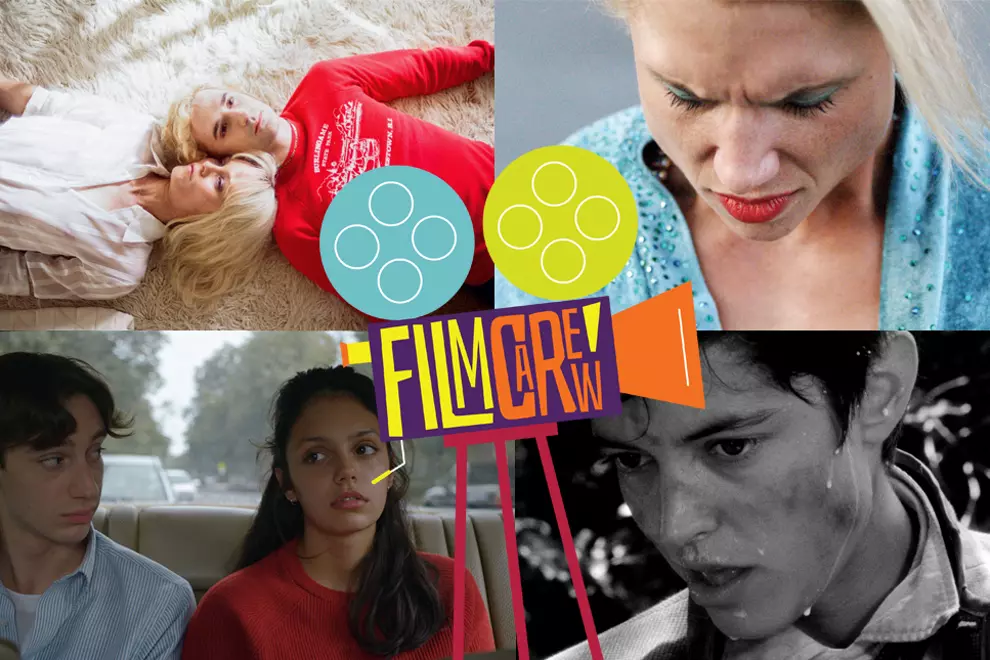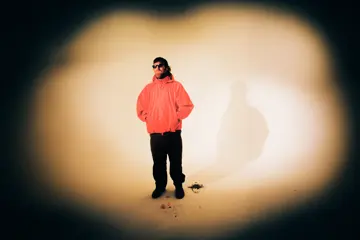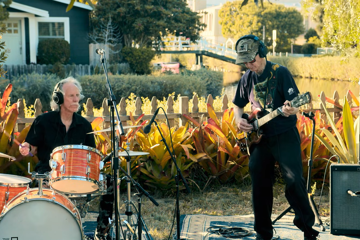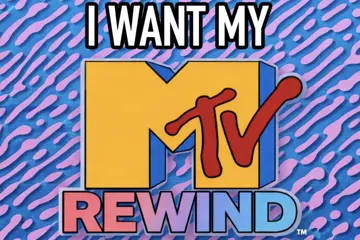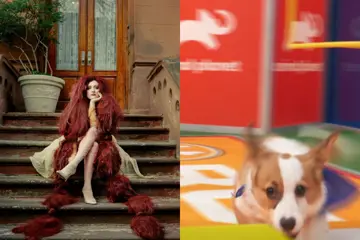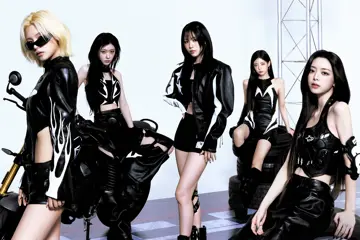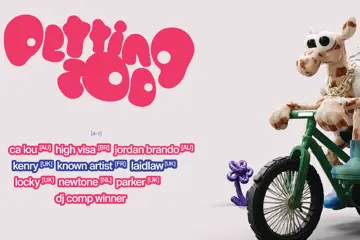This year marks the 30th edition of the French Film Festival, which is always one of the definitive events on the cinematic calendar, taking over cinemas, nationwide, for a month. This year brings a host of exciting things to witness, including Claire Denis’s High Life, Olivier Assayas’ Non-Fiction, and François Ozon’s By The Grace Of God. Below go reviewings of all the things yr old pal Film Carew has seen in advance; a veritable Guide To The FFF.
AMANDA
★★★★
In a simple, slyly-moving scene set in a record-store, Mikhaël Hers’s Amanda gins up the undercurrents of emotion by having an Australian classic spinning on the turntable: the Go-Betweens’ Cattle & Cane. This evidently isn’t incidental, or inserted by some cred-seeking music-supervisor late in production, as, in the film’s unexpectedly-profound, tennis-at-Wimbledon climax, the match is between a pair of fictional players named Forster and McLennan. This is a particularly local note in a French film earnestly attempting to take the pulse of a nation, reeling and healing in the wake of terror attacks. Its premise — after a tragedy, a 24-year-old slacker ends up taking care of his 7-year-old niece — sounds ripe for sitcom, inspiration, and shameless weepie-ism. But Amanda’s a determinedly downbeat drama, tending towards understatement and underplaying, ultimately coming across as gentle, and beautiful.
AT WAR
★★★★
There’s the air of classic Ken Loach in Stéphane Brizé’s industrial-dispute docudrama, never moreso than in the way it stages a run of contentious meetings, in which people talk and yell over top of each other, and competing viewpoints collide, ricochet, and bounce off each other; resolution, in the face of a plurality of viewpoints, seemingly like an impossible dream. Brizé is reunited with his old The Measure Of A Man lead Vincent Lindon, who radiates righteous ire as the union rep forced with trying to keep his striking co-workers together in the face of harsh economic realities and harsher treatment by the intent-on-busting bosses.
DILILI IN PARIS
★★1/2
Placing 2D figures against photo-real backgrounds, the latest film for way-prolific French animator Michel Ocelet looks a little like a work of collage. It’s another twee film for kids, this one seemingly out to teach them about historical figures, as its titular girl gads about a romanticised Belle Époque Paris encounter all manner of celebrities (Monet, Renoir, Degas, Toulouse-Lautrec, Colette, Proust, Rodin, Camille Claudel, etc). She also infiltrates a secret conspiracy called the Master-men, an underground ring of misogynists and racists whose rhetoric feels less like fin-de-siècle France, more modern-day MRA meetings.
GENESIS
★★★★
Don't miss a beat with our FREE daily newsletter
After his incredible debut The Demons, Québécois filmmaker Philippe Lesage confirms his status as ascendant auteur with Genesis. It inhabits a similar world, perhaps the same one (the recurrence of a familiar actor suggests the same), one of some vaguely-timeless recent past, playing like a hazy, distant memory of days just gone by. But, where, in The Demons, Lesage catalogued the terrors of childhood, and childhood’s loss of innocence, here he plunges into adolescence, into furtive first crushes, sexual experiences, schoolyard politics. He captures it all with the same artful composition, and here employs a host of recurring pop-songs — by Aldous Harding and TOPS, notably — to sweet effect.
GIRL
★★★1/2
For most of its runtime, Girl is unexpectedly sweet. Lukas Dhont’s film is a coming-of-age film obsessed with bodies, and especially that of its lead, a trans teen struggling with gruelling studies — and the gender binaries of ballet — at a Belgian dance academy. In her experiences, and relationship to family (and body), it’s a character study of calm observation, abundant empathy, and a percolating feeling of cautious positivity. But, in its last act, things take a turn towards something approaching body-horror; a brutal, harrowing end plunging a once-light film into darkness.
LE GRAND BAL
★★★
Laetitia Carton’s documentary is a look at the world of rural folk dances, communal gatherings steeped in traditional music and courtship. But, really, it’s about the humans therein, and the human psychology at play. As her camera watches on, observationally, she looks at the desire for human connection that underpins the whole thing; and at the gender politics, social status, and nostalgic yearning that percolate throughout. There’s no real narrative to speak of, but lots of (literal) toe-tappers.
AN IMPOSSIBLE LOVE
★★★1/2
The sweet title, period setting, handsome lead paramours, and an almost matinée air that Catherine Corsini plays with, in An Impossible Love, are all, it turns out, a kind of misdirection. Adapting, as she is, a book by the notorious French writer Christine Angot, it’s no surprise that things, inevitably, turn dark. The film charts a relationship between Virginie Efira (who’s all over the FFF) and Niels Schneider, which starts out as a charming courtship, before growing stranger, more strained, more painful over time. Time sprawls on, narrated years into the future by the daughter the pair eventually have (who turns out to be, as an adult, Jehnny Beth of Savages!). It’s essentially about how suffering and trauma pile up over the years, and the corrosive effects of emotional compromise and denial.
KEEP GOING
★★★★
Efira also headlines Keep Going, the latest flick for the great Belgian director Joachim Lafosse. After his last film, After Love, looked at the painful dissolution of the family unit (speaking of painful and families: his grim Our Children is incredible), here he looks at a different familial relationship: mother and son. Efira plays a parent who’s invited her perpetually-angry, self-destructive teenager — the great young Swiss actor Kacey Mottet Klein — on a pretty crazy family holiday: a horse-riding trip, overland, for days, across the desert of Kyrgyzstan. The landscape echoes the classic vistas of a Western, but, narratively, it’s more familiar as road-movie: this journey effectively interrogating an uneasy relationship, and an unspoken history.
KNIFE+HEART
★★★★
Two films in, we can confirm that Yann Gonzalez has a distinctive style, a hyper-stylised nocturnal realm of saturated colours, throbbing eroticism, flights of lurid fantasy, vivid queerness, Kate Moran, neon M83 synths, and artful riffs on various forms of vintage exploitation. Here, inspired by his love of a 1980 porn-movie called Équation à un inconnu, Gonzalez fashions a slasher-mystery set against the seedy underworld of late-’70s gay porn, with Vanessa Paradis commanding in a central role as a charismatic, drunken, oft-abusive producer/impresario. It’s strange, stylish, decadent, ridiculous; at once a comedy and a horror-movie. But mostly it’s a work of meta-cinema, that’ll be loved, most, by cinephiles.
A MAN IN A HURRY
★★
Unbearably twee crowdpleaser in which Fabrice Luchini plays an exacting high-capitalist asshole whose ordered, high-powered life comes tumbling down when he suffers a stroke, leaving him in a condition in which he mixes up and mispronounces words. Thanks to a kindly speech pathologist (Leïla Bekhti) and his largely-reassuring daughter (Rebecca Marder), he learns some sweet lessons in treasuring life and the people around you, and to not be a dick all the time.
THE NIGHT EATS THE WORLD
★★★1/2
It’s the end of the world, but not as we usually know it. Here, director Dominique Rocher — adapting Pit Agarmen’s book— gives a comic spin on the zombie movie; or, moreso, in the male-competency-fantasies that so populate apocalyptic flicks. Here, with the zombie hordes tearing up Paris, an omega man (Anders Danielsen Lie) holes up in a apartment, where he’s safe, but very, very bored. Watching him kill time, there’s genuine philosophy —and a kind of meta-movie genre-critique — in its dramatic banality. When it occupies your whole schedule, even hiding out from brain-eating hordes can turn quotidian, dull.
PEARL
★★★
Oh, look, it’s Peter Mullan, forever the embodiment of the violent, insecure, wrathful patriarchy, playing a drill-sergeant body-building coach who barks things like “I came here to win!” in between glowering, growling, and radiating macho cruelty. Set in the dark, shadowy, nocturnal underworld that is a female body-building competition, it’s a character study of its titular figure, a competitor whose past — embodied in the form of the child she long-ago gave up — threatens to derail her presence. Debutante director Elsa Amiel fares best when she abandons the drama to trade in the sensorial; be it when touring this terrifying underworld or in a nightmarish descent into a boisterous crowd at a soccer stadium.
PLACE PUBLIQUE
★1/2
Uggggh. Whatever goodwill Agnès Jaoui and Jean-Pierre Bacri had left from their beloved 2000 flick The Taste Of Others comes to die, here, with an insufferable garden party movie. Bacri plays yet another grump, a 65-year-old conservative radio pundit, who shows up at an ensemble cast gathering in a silly wig, ready to complain. His fame means that the film, in turn, offers incredibly banal observations on celebrity, like ‘people always want to take selfies with them’; the party a place where city meets country, and stereotypes bounce off each other. It’s one of those comedies where nothing is actually funny — especially a legit pratfall — only, the script has a wholly self-congratulatory tone that’s entirely misplaced.
REVENGE
★★★★
Coralie Fargeat’s rape-revenge flick is a hyper-stylised, ultra-bloody, blackly-comic riff on one of the oldest exploitation sub-genres. In a synth-soundtracked, mythical, almost-biblical desert wasteland, an American woman is brutalised and left for dead by a trio of vicious Frenchmen; only to undertake a rampage of brutal vengeance, simultaneously settling both personal and historical scores. Revenge’s most remarkable moment isn’t any of its wild blood splatters or body horrors, but a psychedelic, free-associative dream-within-a-dream-within-a-dream sequence, in which a host of misdirections pirouette amongst animalistic images that riff on predator/prey, infestations, and phoenix symbolism.
SINK OR SWIM
★★
Sink Or Swim has an incredible opening. In making a thematic point about square pegs and round holes, actor-turned-director Gilles Lellouche begins with a visual flourish of illustrative imagery from the natural world, all kept in a perfect circle, and then contrasts it with the hard right-angles of the man-made metropolis. It’s an exciting few minutes of big-picture ideas and strong visual intent, but, sadly, it has almost nothing to do with the rest of the film. That rest of the famous-face-filled film is yet another riff on that Full Monty trope: economically disenfranchised small-towners undertake an unexpected pursuit to make money, and learn a little about themselves along the way. This time: middle-aged men take up synchronised swimming! Comedy does not ensue.
THE SISTERS BROTHERS
★★★1/2
Jacques Audiard made The Sisters Brothers, hence, it’s at the French FF. Having long ago made his name as a bulletproof French auteur —The Beat My Heart Skipped, A Prophet, Dheepan, etc — Audiard, here, makes his English-language debut, in a blackly-comic Western starring Joaquin Phoenix and John C. Reilly as a part of bounty-hunting brothers on a job, following Jake Gyllenhaal and Riz Ahmed, who have a mystical, magical formula for illuminating the gold dust in a river. Patrick deWitt’s source-text in an absurdist comedy, but what comes to screen is an interesting confluence of tones: tragicomedy, reverie, revisionist Western, and unexpectedly sincere study of the burden of family and history.
SOPHIA ANTIPOLIS
★★★
With its vignetted corners, boxy aspect, and washed-out colours, Virgil Vernier’s dry, droll movie looks like it was shot on old slide film. Somewhere between architectural study, modern-day ethnographic riff, and absurdist comedy, this is a stripped-down art-movie contained in a single setting: the titular ‘technology park’, where humans live amongst a weird mixture of industrial buildings and faux-luxury residences. The loose, barely-there narrative delivers a series of vignettes about the lost denizens dwelling therein; though it’s more psychological study of inhabiting an inhumane place than anything approaching familiar drama.
SORRY ANGEL
★★★1/2
The opening credits of Christophe Honoré’s Sorry Angel, a glorious match of typeface and tempo, are so incredibly beautiful that when I was sat in the cinema seeing them, my heart actually started to beat faster, like I was falling in love. Honoré’s films are forever filled with beating hearts and lovelorned romance and, of course, abundant queerness. His latest sets a romance — between Vincent Lacoste and Pierre Deladonchamps — against an AIDS-in-the-’90s setting. Said setting will earn it endless comps to Robin Campillo’s BPM, but this isn’t a film about the societal. Instead, it’s real personal; full of of-the-era films and jams that seem like personal memories more than placed references.
THROUGH THE FIRE
★★★
In this based-on-a-true-story flick, Pierre Niney plays a Parisian firefighter who thrives in the militaristic world of the French fire department: loving the training, discipline, and machismo, and living with wife Anaïs Demoustier on the veritable barracks. In the military formations, the firefighters ritualistically call out the names of people who’ve died; both as acknowledgement of the past and a constant reminder of their perilous mortality. The dangers of the job come home when our hero is trapped in an inferno, and horrifically burned. The film, thereafter, becomes a recovery movie: about the loss of physical prowess and identity, about the struggle to move on, about the darkness of a brush with death, and about how a horrific incident can turn a good man into an angry dick. It’s, in such, infinitely comparable to David Gordon Green’s Jake Gyllenhaal-starrer Stronger.
THE WILD BOYS
★★★★
Bertrand Mandico’s hyper-stylised feature debut puts a psychedelic, genderqueer spin on Lord Of The Flies. A host of recalcitrant schoolboys are sent off on a reformatory journey, sailing over the seas to a strange, enchanted island filled with sexually-rapacious plant-life and mystical gender fluidity. Mandico’s great gift is for old-fashioned in-camera effects and use of rear-projection, which betrays an obsessiveness, expressiveness, and experimentalist approach. The result is film that’s a wild delight for cinephiles and/or fans of the absurd.
THE WORLD IS YOURS
★★★
For those who like their cinema Scorsese-like/lite: here comes Romain Gavras’ brightly-coloured, oft-comic romp The World Is Yours. Filled with both film stars and references to other crime movies, there’s not just clueless goons and criminal behaviour turned weirdly quotidian, but all the crane-mounted camera moves, ambitious set pieces, bold pop song soundtrack cues (Battles’ Atlas gets prime placement, and slays), and style-is-the-substance tricks that you expect from a Scorsese-styled film made by a video-clip director.

